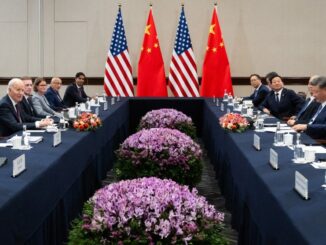
MANILA, Philippines — The Philippines on Monday, September 23, expressed support for a landmark United Nations reform plan, saying it was a chance to rekindle nations’ commitments to resolving international disputes and conflicts peacefully.
The UN Pact for the Future, adopted by the UN General Assembly without a vote on Sunday (Philippine time), aims to revive global cooperation by committing UN member states to a whopping 58 actions in five areas, including international peace and security.
The pact also puts forth the “most progressive and concrete commitment to Security Council reform since the 1960s” and renews nations’ commitments to preventing a nuclear war from breaking out, according to the UN.
Foreign Affairs Secretary Enrique Manalo, who is leading the Philippine delegation to the 79th Session of the UN General Assembly, described the much-vaunted agreement as a “touchstone for all international efforts to resolve disputes, prevent conflicts, protect human rights and enhance global governance.”
“The pact can guide the UN in delivering meaningful outcomes for peace and security for human rights, for fairness and equality for resilience from crises and disasters and for empowering individuals and all communities in the world,” Manalo said in his speech before world leaders.
“It is important that this pact renews our collective determination to diffuse tensions and seek the peaceful resolution of disputes and conflicts,” he said.
Manalo added that preserving a rules-based international order is a “collective duty.”
The Philippines’ top diplomat also grounded the country’s support for the newly adopted agreement in the four-decade-old Manila Declaration on the Peaceful Settlement of International Disputes, which was approved by the UN General Assembly in Manila in 1982.
The declaration was the first UN instrument to provide a comprehensive plan for the peaceful settlement of global disputes. Manalo stressed that it compels states to reject the use of force to settle disputes.
“As a founding member of the UN and the first Asian Republic, the Philippines shall always be a voice for peace, equity and justice, human rights and human dignity, the rule of law and constructive multilateralism,” he added.
Philippine Ambassador to the US Jose Manuel Romualdez earlier said that the Philippines is one of 20 nations that aim to meet at the sidelines of the UN General Assembly this month to find ways to “talk sense” into Beijing, which continues to reject a 2016 international tribunal ruling that dismissed its claims to nearly the entire South China Sea.
Earlier this month, a senior Beijing military official threatened to “crush” any foreign incursion into its sovereign territory. The National Maritime Council brushed off the threat and said the Philippines remains committed to peaceful dialogue with Beijing.
Thwarting a nuclear arms race
Besides exalting the agreement for its potential to improve the peaceful settlement of disputes, Manalo also said it should lead to the eventual dismantling of all nuclear weapons and other weapons of mass destruction.
The pact must also “propel our endeavors to establish norms to prevent an arms race in space, govern lethal autonomous weapons and address the risks of emerging technologies to international peace and security,” he added.
The Pact for the Future is the first global recommitment to a nuclear-weapons-free world in more than a decade, according to a UN news release.
The 61-page document, which addresses everything from peacekeeping, climate change to the emergence of artificial intelligence, includes a “clear commitment to prevent an arms race in outer space and the need to ensure all countries can benefit from the safe and sustainable exploration of outer space.”
To ensure international peace and security, the text also holds nations to a promise of avoiding the weaponization and misuse of merging technologies. The document states that nations must “continue to assess the existing and potential risks associated with the military applications of artificial intelligence and the possible opportunities throughout their life cycle.”
UN Security Council reform
The pact also commits world leaders to reform the powerful UN Security Council by expanding the 15-member body to include developing countries.
Specifically, the text expresses the intent to address the under-representation of the Asia-Pacific region and Latin America, as well as “redress the historical injustice against Africa,” which has no permanent seat.
One of the Philippine delegation’s priorities at the sidelines of the assembly this week is its bid for a non-permanent seat at the Security Council for the term 2027 to 2028, Manalo said over the weekend.
In a statement, the country’s top diplomat said the Philippines is “making positive headway” in its campaign.
While the Philippines vies to be among the council’s non-permanent members, the five countries serving as permanent members are China, France, the Russian Federation, the United Kingdom and the United States. Security council members, particularly Russia and China, have faced criticisms for human rights violations.
Their seats, however, were historically granted in the aftermath of World War II and there is a lack of mechanism for removing permanent members.
Russian derailment
Prior to the agreement’s adoption on Sunday, Russia had attempted to defer its approval by proposing a last-minute insertion of the “principle of non-interference in the internal affairs of states.”
Russia’s objections were backed by its allies, including North Korea. But it was eventually struck down by the assembly after the Democratic Republic of the Congo submitted a motion to reject Russia’s move, which was accepted by a majority of 143 votes.





Be the first to comment